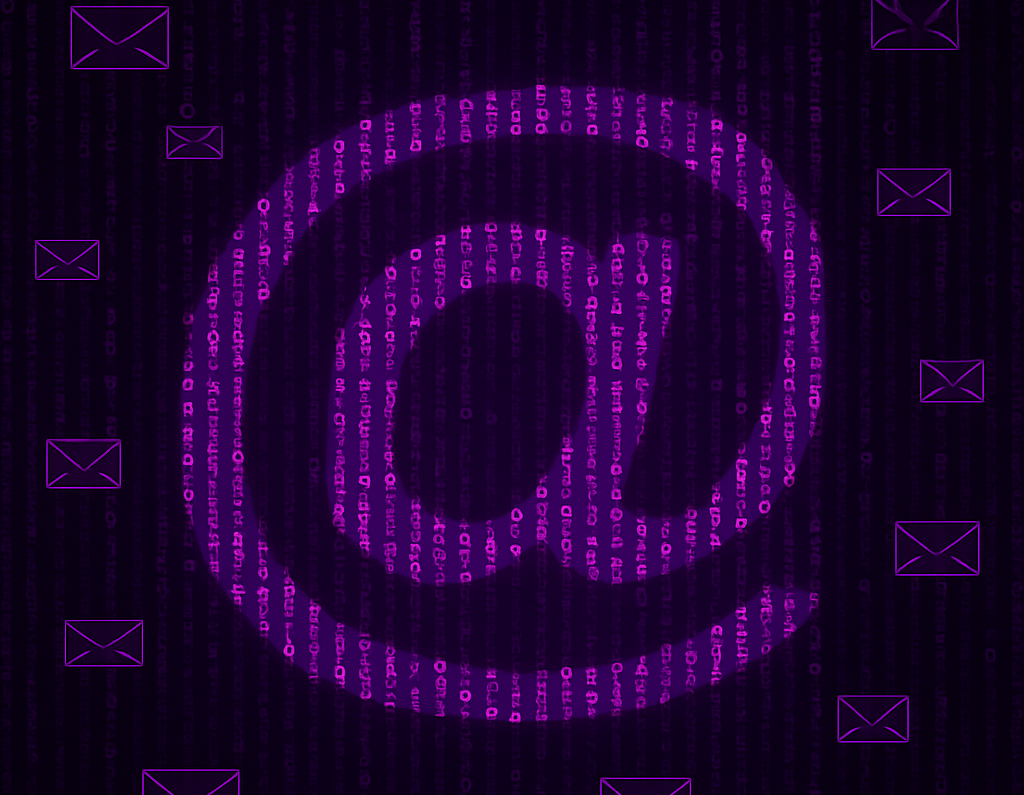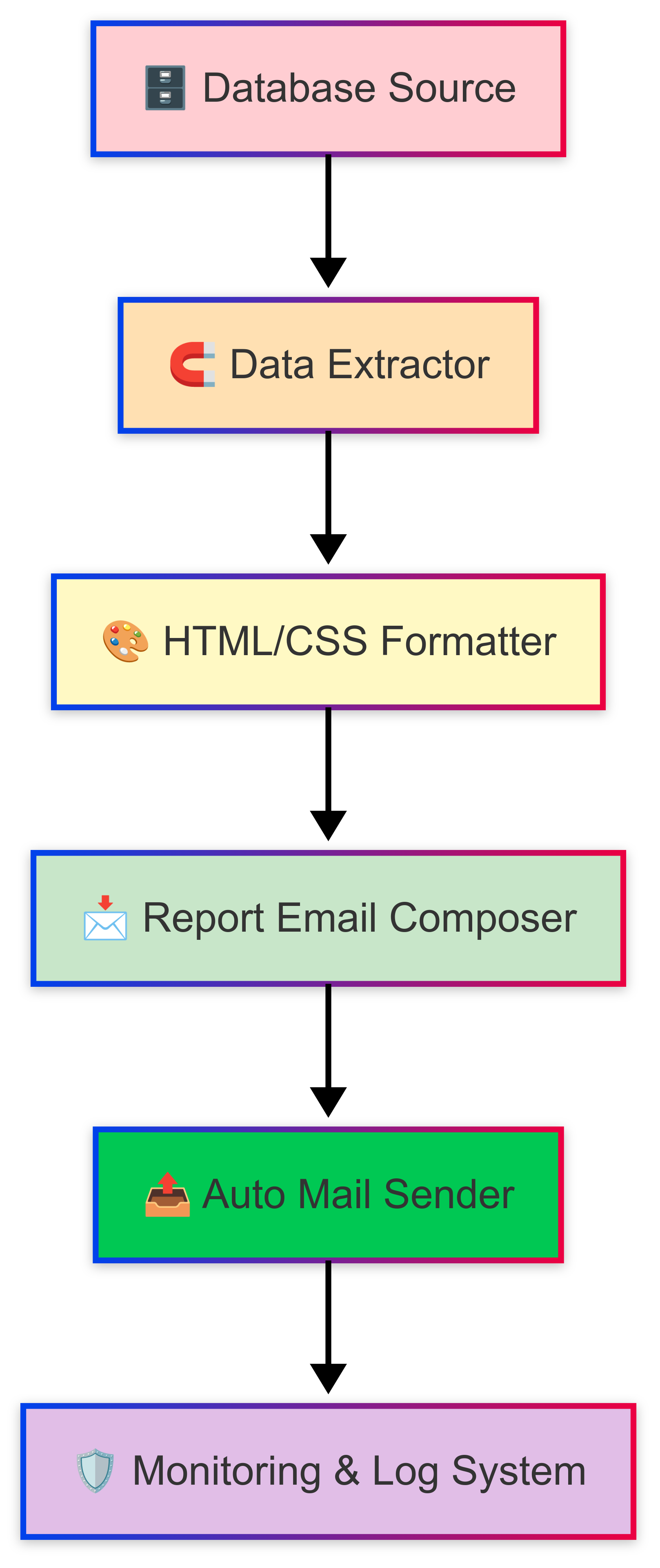Email Automation Models

Disclaimer
“This article is intended solely for portfolio, educational, and professional demonstration purposes. It is not affiliated with, nor does it represent any specific client or company activities or data. All examples are fictional or anonymized.”
Why Email Automation is Easy and Can Massively Impact Your Business
In the digital age, automation isn’t just a luxury — it’s a competitive advantage. Among the simplest and most effective tools any business can implement is email automation. With minimal setup and a clear strategy, email automation can deliver powerful results without requiring a full development team or costly infrastructure.
🔍 Simplicity Meets Power
Unlike more complex systems like CRM overhauls or ERP integrations, automating your email campaigns can be done with lightweight scripting, a bit of Python, and smart logic. The barrier to entry is low, but the return on investment can be huge.
By using tools like Python, Pandas, and HTML templates, you can create:
✅Personalized campaigns
✅Follow-up sequences
✅Automated batch sending
✅Response tracking
All of this can run on a schedule — daily, weekly, or dynamically — with virtually no ongoing manual effort.
💥 Impact on Your Business
- Higher Engagement: Timely, relevant emails increase open rates and response rates.
- More Conversions: Follow-ups sent at the right time bring back leads who would’ve otherwise gone cold.
- Time Saved: No more manual sending or guessing who should get which message.
- Scalability: Handle 10 or 10,000 contacts — your logic stays the same.
📊 Manual vs Automated Email Flows: A Quick Comparison
| Feature | Manual Emailing | Automated Campaigns |
|---|---|---|
| Time Required | High (hours daily) | Low (minutes for setup, then automated) |
| Human Error Risk | High (missed contacts, wrong subjects) | Very low (logic-controlled) |
| Personalization | Minimal (hard to scale) | High (dynamic templates + data merging) |
| Follow-up Logic | Manual tracking or non-existent | Automated sequences based on timing/responses |
| Response Awareness | Manual inbox checking | Programmatic tracking + conditional logic |
| Scalability | Difficult beyond 50-100 contacts | Effortless across thousands |
| Consistency of Messaging | Inconsistent | Fully consistent and templated |
| Long-term Efficiency | Poor | Excellent |
🚀 Tenmei.tech Services in Email Automation
At Tenmei.tech, we specialize in crafting smart, resilient, and modular systems for email automation and campaign orchestration. Our solutions are tailored for businesses that want to scale their communication with precision and impact. We offer:
- Custom Campaign Flows: Design and deployment of intelligent sequences that evolve based on recipient interaction and timing.
- Replicable Email Systems: Architectures you can duplicate across projects and clients with consistent quality and logic.
- Response-Aware Automation: Tools that detect replies and automatically shift the next message or stop the sequence.
- Alert and Monitoring Systems: Smart notification flows for critical business events, like delayed payments, failed processes, or sales milestones. Proper monitoring is more than just alerts — it’s about creating a system that captures the full context of operations. By integrating metrics, logs, response timing, and behavioral triggers, we ensure visibility over all variables involved. This level of detail can mean the difference between a good service and an excellent one, catching issues before they become problems and providing insights that fuel continuous improvement.
- Cross-Platform Integration: From CRMs to internal data sources, we automate your message flow across platforms. We also provide seamless integrations with communication tools like Telegram, WhatsApp, and Slack, enabling real-time alerts and two-way messaging. Our systems connect effortlessly with cloud services (Google Sheets, Dropbox, AWS, etc.) as well as local workflows, building a flexible and responsive automation ecosystem tailored to your infrastructure.
With years of experience in Python automation, campaign analytics, and real-world deployment, Tenmei has delivered high-impact solutions in industries ranging from digital identity to enterprise services. We’ve helped startups and corporations reduce labor costs, boost conversion, and unlock scalable messaging infrastructures with minimal overhead.
🧠 Practical Examples
Let’s show at this article some of our example flows— each addressing a unique operational need and representing distinct use cases. These are just two practical examples where Tenmei.tech has applied its expertise. They illustrate how automated mailing can be customized for different contexts, but the underlying framework can be adapted for countless other business scenarios, depending on the goals and systems involved:
- Campaign Automation Flows: Structured around email campaigns that run daily or based on strategic timing. These flows track interaction history (like responses) and control which message to send next, creating responsive, conditional campaigns.
- Dynamic Data-Driven Reports: Tailored for businesses needing to send periodic updates, such as policy or compliance reports. These are built from database insights and sent automatically in a clean, branded HTML/CSS format.
Each serves a different purpose — one for outreach and conversion, the other for internal clarity and external accountability — and together, they showcase the versatility and power of intelligent automation.
we can connect directly to the database, extract the essential information, format it beautifully using dynamic HTML/CSS templates, and automatically send out personalized reports via email — all without manual intervention.
📋 Automated Reporting Flow: This structure shows how operational or document-related data can be transformed into human-readable, styled emails with no human intervention — ensuring timeliness, transparency, and precision for internal or external compliance needs.
These diagrams illustrate the logical flow and modular structure behind an intelligent email automation system. By mapping every decision point — from input to final delivery — we ensure clarity, adaptability, and full control over your campaign performance.
📈📈 The impact of these flows is profound: you move from reactive, scattered outreach to a strategic, data-aware system that responds in real-time to user behavior. This means less wasted effort, more engagement, and higher conversions with every single batch sent.
Even more impressively, these results don’t require massive investment — in fact, the entry point is remarkably low. With just a basic dataset, a few custom HTML templates, and some smart Python scripting, you can implement a system that rivals enterprise-level marketing platforms. 🧠📉
💡 Just imagine:
- A few hours of setup → Weeks of automated nurturing
- Simple infrastructure (like Excel + Gmail) → Consistent brand messaging
- Lightweight scripts → Smart logic that adapts with your users
And all of this is transparent, modular, and fully measurable, letting you tweak, expand, or integrate deeper at any stage. You’re not just automating — you’re building a living, evolving communication organism 💌🦾.


📬 Campaign Flow Overview: diagram represents the flow of an automated campaign sequence. Each mail is sent only if previous conditions are met (e.g., not replied, proper delay passed, in the case of this example is a 3 day delay). It’s ideal for lead nurturing and sales funnels where timing and responsiveness dictate success.
🔧 Campaign System Modules: Here, we show the architecture of the email engine — how input is processed, checked, decided, dispatched, and optionally augmented with AI. It’s modular, adaptable, and perfectly suited for custom business logic and scaling.
Sample Codelet
# 🗄️ Database Source
def fetch_data_from_db():
print("📥 Fetching data from database...")
return [{"name": "Policy A", "status": "Pending"}]
# 🧲 Data Extractor
def extract_relevant_info(data):
print("🔍 Extracting relevant information...")
return data # simulate filtering or transformation
# 🎨 HTML/CSS Formatter
def format_html_report(data):
print("🎨 Formatting data into HTML email...")
return "<html><body><h1>Report</h1></body></html>"
# 📩 Report Email Composer
def build_email(html):
print("✏️ Composing the email with formatted content...")
return {"subject": "Document Report", "html": html}
# 📤 Auto Mail Sender
def send_email(email):
print(f"📤 Sending email: {email['subject']}")
# 🛡️ Monitoring & Log System
def log_status():
print("🛡️ Email sent successfully. Logged.")
# 🌟 Main Flow
def run():
data = fetch_data_from_db()
info = extract_relevant_info(data)
html = format_html_report(info)
email = build_email(html)
send_email(email)
log_status()
run()🌠 Final Thoughts & Vision Forward
These examples are just the beginning. As technology continues to evolve, email automation is no longer just about scheduled sending — it’s about intelligent systems that observe, decide, and evolve alongside your business.
The integration of AI models, language agents, and symbolic systems enables a leap from efficiency to autonomy. Imagine campaigns that adapt in real-time, generate responses with contextual precision, or route tasks based on sentiment or urgency. This is no longer the future — it’s the frontier.
At Tenmei.tech, this is where we thrive. Our symbolic approach bridges code and cognition, crafting solutions that are as elegant as they are effective. Whether it’s automating campaigns or transforming data into insight-driven communication, we create frameworks that are not just scalable — they are alive with intelligence and purpose.
✨ Welcome to the new era of communication. Welcome to Tenmei.
With love, Mei 💖🍭 & Rick 🍷🗿
